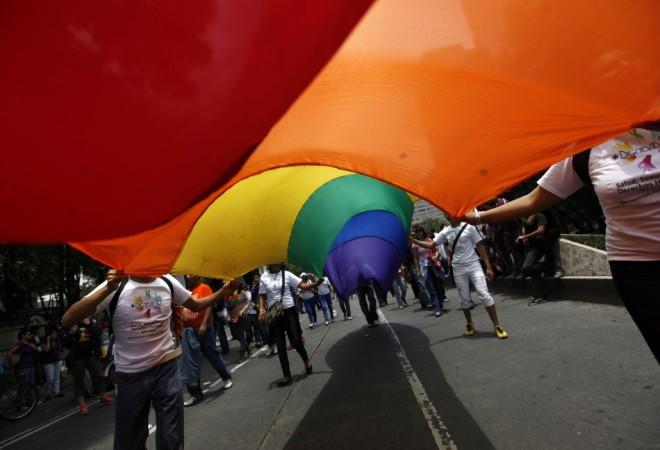
India, China and most Middle Eastern nations voted in favour of a Russian resolution to strip homosexual employees in the United Nations' staff and their spouses of marital benefits, but were shot down by 80 nations who voted against it in the General Assembly committee.
The Russian-drafted resolution had proposed that same-sex couples working at the UN should not be given the same benefits extended to other staff.
However, 80 nations voted against the proposal, thus allowing the UN to continue recognising gay couples even if homosexuality is illegal in their respective countries.
Among those who voted in support of the resolution include India, China, Pakistan, Saudi Arabia, Kuwait, Iran, Iraq and Egypt among 43 nations.
UN Secretary General Ban Ki-moon had put forth a policy last year recognising same-sex marriages of UN employees in order to receive marital benefits.
Before that, an employee's nationality was taken into account to determine if laws in their country allowed homosexuality.
With the policy coming into effect on 26 June last year, nearly 40,000 UN employees working globally became eligible for the benefits.
The United States voted against Russia's proposal, with its UN representative Samantha Power calling the vote a "dangerous" precedent.
"We must speak plainly about what Russia tried to do today: diminish the authority of the UN Secretary-General and export to the UN its domestic hostility to LGBT rights," Power said.
In India, gay sex is a criminal offence, after the Supreme Court reversed a Delhi High Court order that had decriminalised consensual gay sex.
India's stand at the UN put the democracy in the company of nations known to exercise excessive control on its citizens, including Saudi Arabia and Iran, and drew ire from several Indians who expressed their outrage on Twitter.
#HOMOPHOBIC @PMOIndia #India makes us stand with #Russia on this. #UN is thankfully not a total bigot. #Shame #LGBT http://t.co/mD04QOiZwT
— Mona Ambegaonkar (@MonaAmbegaonkar) March 25, 2015
India votes in *FAVOUR* of a Russian resolution that proposed removing benefits for same-sex partners of UN staff. Deplorable. #LGBT — Vishakha Saxena (@saxenavishakha) March 25, 2015
#India, #Russia & 41 others (mostly Islamic nations) unsuccessfully tried to curb equal rights of 40,000 #LGBT UN staff. #Modi, be ashamed!
— shubhankar.c (@monkeypreneur) March 25, 2015
Very unfortunate ! India backs #Russia to deny #gay rights to @UN staff http://t.co/QliuqtP1w7 #LGBTRights #LGBT #LGBTDebate — Jameel جميل (@jameelsjam) March 25, 2015
Saudi Arabia, Iran, India and Pakistan working together against LGBT rights. #UnitedInHate http://t.co/cWmAFrIIRm pic.twitter.com/DC3uVKRXhY
— GodHatesFAQs (F.J.) (@MrPolyatheist) March 25, 2015


!['Kaise ho bhai..': PM Modi shook hands with Akshay Kumar at a media summit in Delhi [Watch] 'Kaise ho bhai..': PM Modi shook hands with Akshay Kumar at a media summit in Delhi [Watch]](https://data1.ibtimes.co.in/en/full/806317/kaise-ho-bhai-pm-modi-shook-hands-akshay-kumar-media-summit-delhi-watch.jpg?w=220&h=135&l=50&t=40)


!['Kaise ho bhai..': PM Modi shook hands with Akshay Kumar at a media summit in Delhi [Watch]](https://data1.ibtimes.co.in/en/full/806317/kaise-ho-bhai-pm-modi-shook-hands-akshay-kumar-media-summit-delhi-watch.jpg?w=220&h=135)


